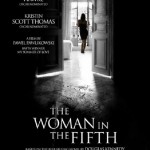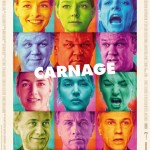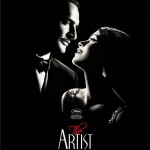Subtle and clunky, arty and crafty, nuanced and simplistic: Mud can be a frustrating experience. At times entrancing, at times flirting with absurdity, Jeff Nichols delivers an enjoyable, gorgeous-looking but, ultimately, incomplete piece of cinema that hits some, misses others of its targets and ends up a little too close to betraying the cultural lineage it’s so carefully paying its respects to.
It’s a sort of thriller, Mud, a sort of silver-screened Woody Guthrie/Springsteen song, a sort of folk tale, a sort of straightened-out Coen Brothers piece, a sort of Steinbeckian story of the family, and capitalism’s assault on ordinary people, a sort of Stand By Me-style coming-of-age movie, a sort of meditation on love, a sort of elegy for a disappearing America. Some of these it does well, some less so…
At times, there’s a breathtaking tension in the characters’ (and our) attempts to work out the truth about the relationship between Matthew McConaughey’s eponymous fugitive and Reece Witherspoon’s ambiguous femme fatale; there are shots of the Mississippi that are exquisitely, sparklingly seductive; there’s one moment of genuine, pleasurable shock. The whole thing is beautifully illuminated by Tye Sheridan’s performance as a Huckleberry Finnish kid struggling to force his way into an adult world in which men are crap fathers, hapless victims of feminine wiles, dark and reticent haunted ghosts… or all three. Sheridan, Witherspoon and the rest of the supporting cast are brilliant: it’s hard to take your eyes off them.
And the same is true of McConaughey, but not necessarily in a wholly positive way. Occasionally, both his character and his performance drag things ham-fistedly toward cliche, toward superficiality, toward artificiality, toward unintentional humour. He’s big, strong, monochromatic, Messianic; he talks like every cowboy/loner/misunderstood male figure in cinematic history rolled into one. There’s a rare delicacy to his responses in one scene that frustrates because of that very rarity: why couldn’t Nichols/McConaughey dig out more texture, more originality, more… authenticity? (And, while there’s a reasonable(ish) plot reason for McConaughey to do his usual crowd-pleasing thing and take his shirt off, by the time this happens the silliness of aspects of his character undermine the significance of the act)
All of which might make Mud sound worse than it is. And it’s a long film that doesn’t really feel long, it’s neatly paced, entertaining, literate and thoughtful. It pays too much homage to Great American Stories yet it’s sincere and sporadically winning in the way it attempts to do so. It straddles indie cinema and the mainstream unselfconsciously. It’s…good, pretty good. Not great – it could/should have been great – but still well worth seeing.





